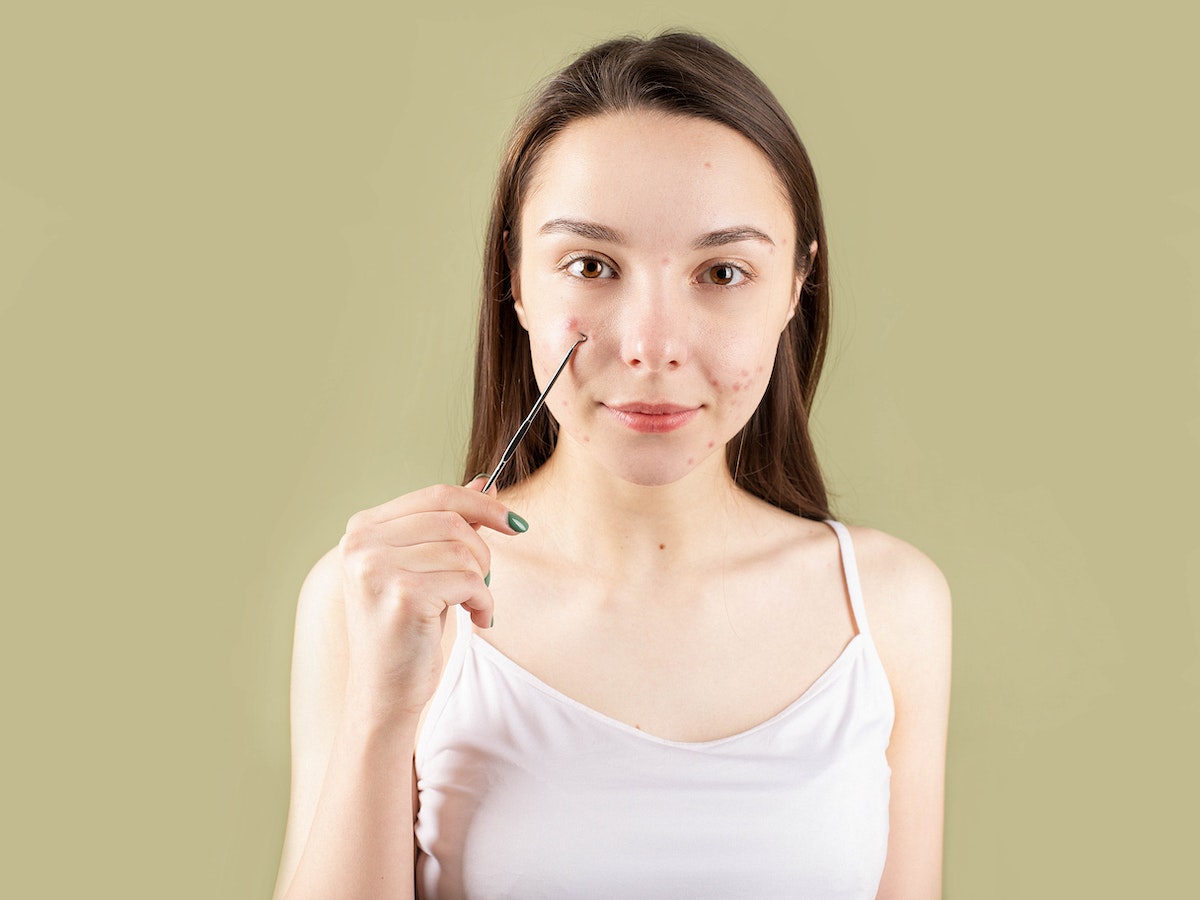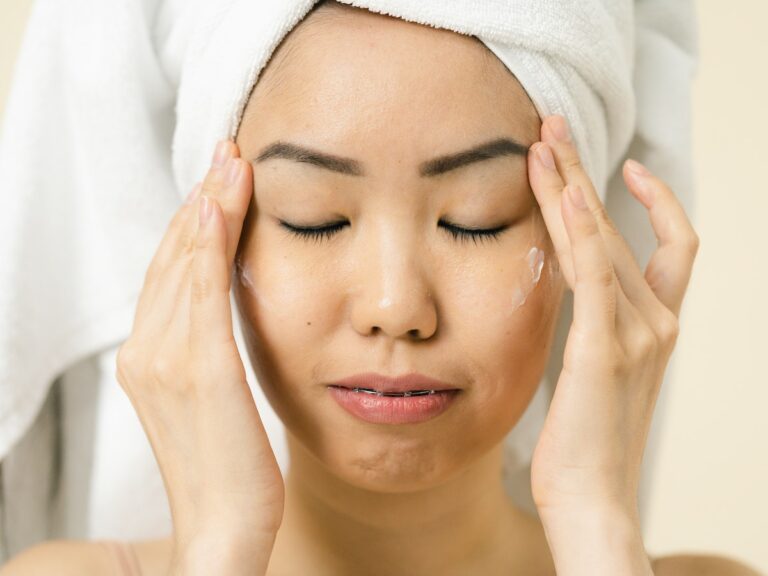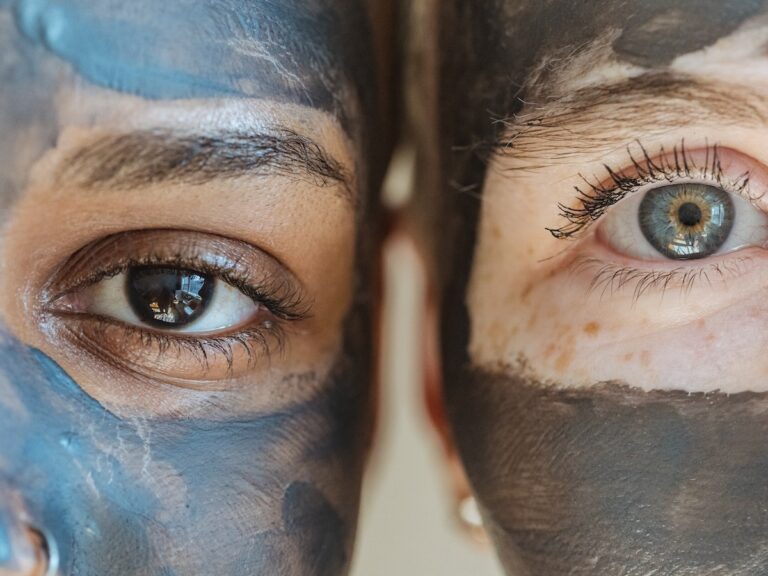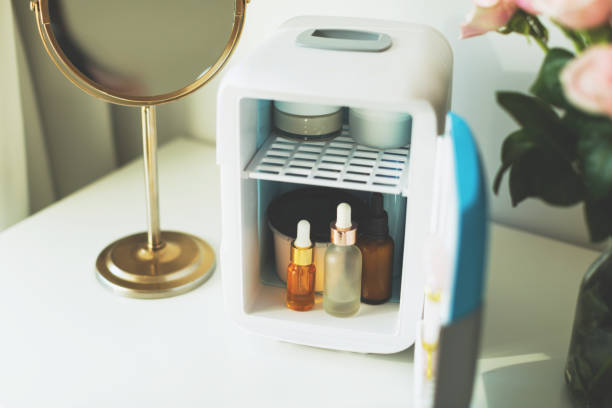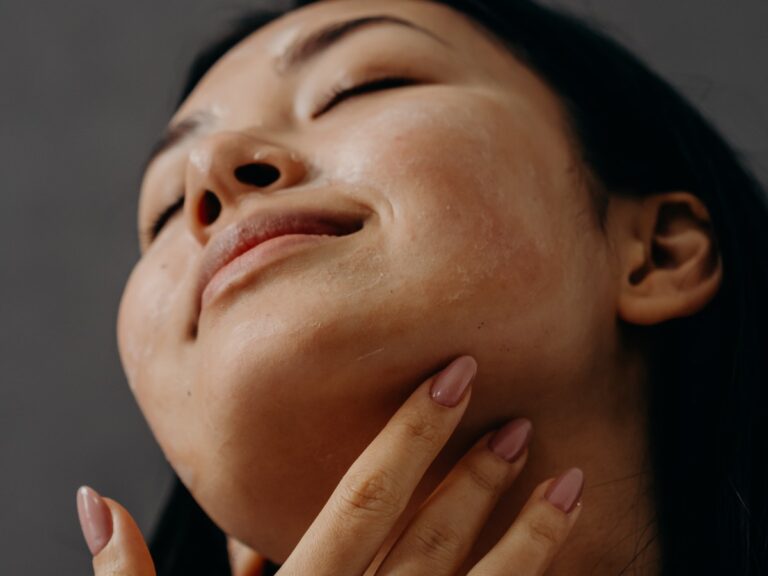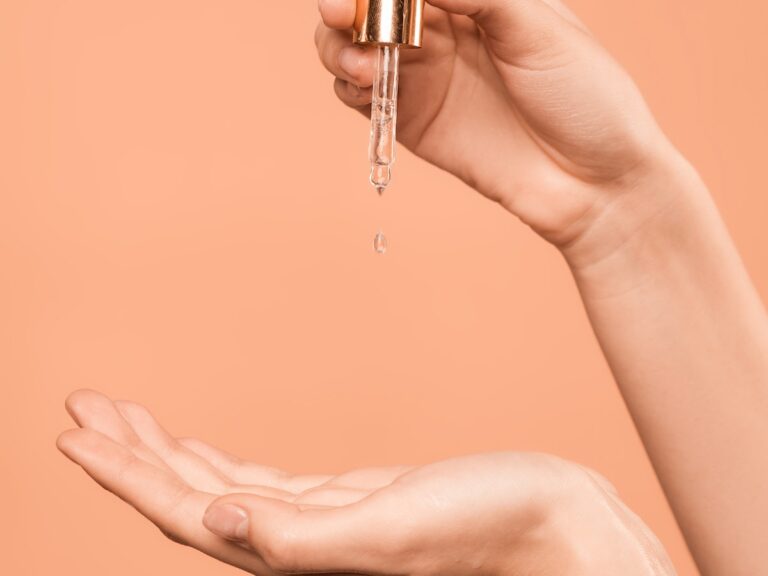Empower Your Skin: Defying Acne with Smart Skincare Choices
Can skincare products cause acne? Many of us who are striving for that perfect complexion struggle with this question. To figure out the truth about this pressing problem, we began on a journey in this article. The more you read, the more you’ll learn about your skin’s potential effects from your cherished skincare routine and what you can do to ensure healthy, acne-free skin.
Beyond the Glow: Exploring the Connection Between Skincare Products and Acne
Picture this: you’re diligently following your skincare routine, hoping to unveil that coveted radiant complexion. But suddenly, those unwelcome visitors – acne breakouts – make an appearance, throwing your efforts off track. Could it be that the very products you’re using to enhance your skin’s health are conspiring against you?
Table of Contents
The Basics of Acne
Ah, acne – the universal skin woe that transcends age, gender, and background. At its core, acne isn’t a simple conundrum with a singular cause. Instead, it’s an intricate dance of genetics, hormones, lifestyle, and yes, your skincare choices. Imagine your skin as a canvas, with tiny hair follicles and pores. Now, envision these nooks and crannies getting clogged with oil and dead skin cells, providing the perfect playground for pesky bacteria. This leads us to the million-dollar question: can skincare products be the villain in this narrative?

Unveiling the Skincare-Acne Connection
In our quest for skin nirvana, we’ve amassed an arsenal of skincare products promising the moon and stars. But, dear reader, the tale takes a twist. Research forms a complex picture – some skincare products might indeed make matters worse. Particularly, those laden with comedogenic ingredients could be unwittingly contributing to the acne saga. The irony is stark: our pursuit of skin perfection might inadvertently fuel the very flames we’re trying to extinguish.
Ingredients that Spark Concern
Welcome to the labyrinth of skincare ingredients – a realm often as perplexing as it is promising. Consider the likes of salicylic acid and benzoyl peroxide, hailed as acne warriors. Yet, lurking in the shadows are potential culprits, like mineral oil and certain silicones, which might trigger eruptions in acne-prone individuals. The lesson? It’s not about shunning every product but rather about being an informed consumer of skincare.
Navigating the World of Non-Comedogenic Products
Imagine strolling through a marketplace of skincare products, each vying for your attention. Amidst the array of creams, serums, and lotions, a buzzword catches your eye – “non-comedogenic.” But what does it mean, and why is it crucial in the quest for acne-free skin?
- Demystifying Non-Comedogenic: Your Skin’s Best Friend:- Let’s break it down: “non-comedogenic” products are formulated to be friends with your pores. They’re the guests who arrive at your skin’s party and don’t overstay their welcome. To put it simply, these products are less prone to clog your pores, which is essential for preventing those unwelcome breakouts of acne.
- Decoding the Label: Cracking the Code:- What is the best way to determine whether a product is actually non-comedogenic? Thankfully, the skincare industry has your back. As you peruse labels, watch out for those magic words: “non-comedogenic,” “oil-free,” “won’t clog pores,” and “non-acnegenic.” These are the beacons guiding you toward products that align with your goal of clear, radiant skin.
- Pore-Friendly Ingredients: Your Allies:- Beyond the buzzwords, non-comedogenic products often boast a lineup of pore-friendly ingredients. Think lightweight, quick-to-absorb substances that won’t linger and congest your skin. In this fight against clogged pores, ingredients including hyaluronic acid, glycerin, and ceramides take the lead.
- Customizing Your Arsenal: Non-Comedogenic Skincare Routine:- You are now prepared to create a non-comedogenic skincare regimen thanks to the knowledge you gained. Visualise a variety of products that compliment each other, including cleansers, toners, moisturizers, sunscreen and, more, all of which have non-comedogenic certification. By taking the right decision, you can make sure that your skincare routine aligns with your goal of a flawless skin.
Tailoring Skincare for Acne-Prone Skin
Crafting a skincare regimen tailored for acne-prone skin demands an artful selection of ingredients. Your knights in shining armor? Non-comedogenic products. These are the cavalry that won’t march into your pores and wreak havoc. Keep an eye out for the magic phrases – “oil-free,” “non-acnegenic,” and “non-comedogenic” – indicators that a product is less likely to incite a breakout rebellion.
Over-Exfoliation: A Common Culprit
Ah, exfoliation – the secret to a luminous visage. But here’s the catch: excessive exfoliation can weaken your skin’s defenses. Think of it as over-polishing a delicate glass sculpture. The result? A compromised skin barrier that’s more susceptible to invaders, potentially resulting in more breakouts. Opt for a gentler approach, allowing your skin the time it needs to recuperate between exfoliating sessions.
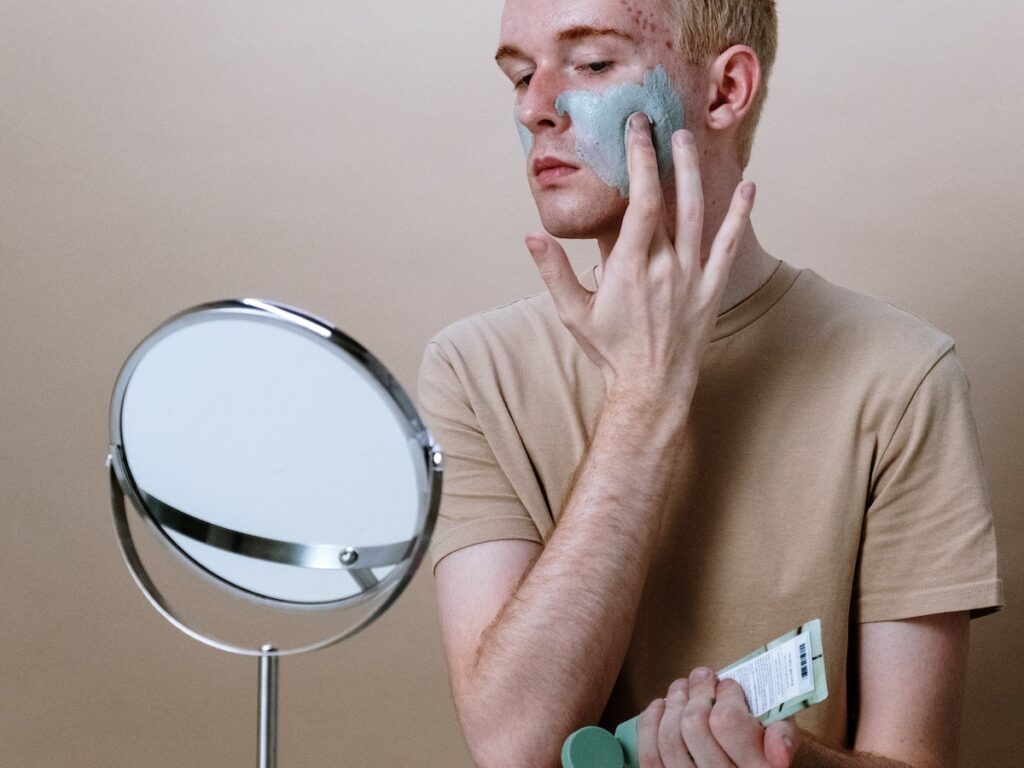
Hormones and Acne: Finding Balance
Now, let’s talk about hormones – those invisible conductors of your bodily orchestra. Hormonal imbalances are like a symphony gone awry, with acne as one of the discordant notes. While skincare can wield some influence, addressing hormonal woes often requires an internal tune-up. This is where the baton passes to healthcare professionals who can guide you toward harmonious hormone levels.
The Role of Diet and Lifestyle
Before you write the next chapter of your skincare saga, consider this: your diet and lifestyle are supporting characters in this narrative. Studies suggest a link between the severity of acne and meals high in the glycemic index. But, that’s not all – hydration, sleep, and stress management also claim pivotal roles in your skin’s well-being. Remember, the canvas you paint your skincare masterpiece on extends beyond topical treatments.
Pro Tip: A well-balanced diet rich in fruits, vegetables, and whole grains can contribute to clearer skin. Avoiding excessive sugar and dairy might also help.
Busting Myths about Skincare and Acne
Myth: “My skin is oily, so I don’t need moisturizer.”
Reality: False alarm! All skin types need hydration. Opt for non-comedogenic moisturizers to quench your skin’s thirst without clogging the pores.
Myth: “Sunscreen makes acne worse.”
Reality: Don’t cast aside your sunscreen shield. Instead, choose oil-free, non-comedogenic formulas to shield your skin from UV harm without inviting acne to the party.
Addressing Sensitive Skin: A Delicate Approach
Skincare for individuals with sensitive skin demands careful handling. Think about carefully navigating a field of delicate flowers. Patch test new products before introducing them to your skincare routine. This careful evaluation helps in identifying potential irritants before they do damage to your priceless canvas.
Expert Tips for Clear, Radiant Skin
- Consistency is Key: A gentle, consistent skincare routine forms the foundation for healthy skin.
- Power Players: Seek out ingredients like salicylic acid – they’re your allies in the fight against acne.
- Consult the Pros: When in doubt, consult a dermatologist. Their expertise offers personalized guidance.
- Holistic Care: Remember, your skin’s health isn’t just skin-deep. Stay hydrated, embrace a balanced diet, and manage stress.
- Stress Less: Speaking of stress, practicing stress-relief techniques isn’t just good for your mind – it’s a gift to your skin.
Conclusion
As our journey draws to a close, armed with insights, you’re poised to make empowered decisions for your skin’s well-being. Can skincare products cause acne? The answer, you now know, is a nuanced tale. Your quest for radiant skin embraces not only the external but also the internal – a holistic approach that harmonizes lifestyle, diet, and product choices. Your skin – the canvas of your story – deserves nothing less than the tender care that brings forth its innate radiance.
FAQs
Q: Can moisturizers worsen acne?
A: Fear not! The right moisturizer won’t sabotage your efforts. Opt for non-comedogenic, oil-free options to keep your skin hydrated without inviting acne to the party.
Q: Are natural products safe for acne-prone skin?
A: Nature’s bounty isn’t universally angelic. Some natural ingredients can be comedogenic, clogging your pores. Always check product labels and consider patch testing.
Q: How often should I exfoliate acne-prone skin?
A: Exfoliation, like a delicate dance, requires finesse. Aim for 2-3 times a week to avoid over-exfoliation, which can exacerbate acne.
Q: Can skincare alone conquer hormonal acne?
A: Hormonal acne is a formidable foe, often requiring more than skincare’s magic touch. Consult a healthcare professional to tackle the hormonal imbalances at play.
Q: Can I wear makeup with acne-prone skin?
A: The canvas of your face welcomes makeup, but with discernment. Choose non-comedogenic, oil-free makeup and ensure thorough removal to keep your pores free and clear.
